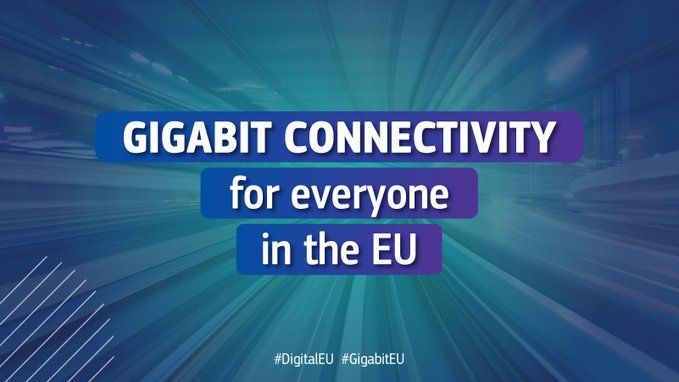The purpose of the “Data Act” is to boost innovation by removing barriers that prevent consumers and businesses from accessing data.
The bill passed in Tuesday’s plenary session was supposed to help the development of new services, especially in the field of artificial intelligence, which requires a large amount of data to create algorithms. It could also lead to cheaper after-sales service and repair of connected devices.
The amount of data generated by humans and machines is growing exponentially and is becoming a key driver of innovation for companies and public authorities (e.g., shaping smart cities). Some consider this type of data as the “new oil”.
The Data Act establishes general rules for the exchange of data obtained through connected products or services (e.g., Internet of Things, industrial equipment) to ensure fairness of data sharing agreements.

European Commission lays the groundwork to make gigabit connectivity available to all citizens and businesses across the EU |
80% of data not used
MEPs adopted measures to allow users access to the data they generate, as 80% of industrial data collected are never used, according to the European Commission. They also want to ensure contractual agreements are at the centre of business-to-business relationships.
Companies would be able decide what data can be shared, and the manufacturer could choose not to make certain data available “by design”. When companies draft their data-sharing contracts, the law will rebalance the negotiation power in favour of SMEs, by shielding them from unfair contractual terms imposed by companies in a significantly stronger bargaining position.
Protecting trade secrets and avoiding unlawful data transfer
The text also defines how public sector bodies can access and use data held by the private sector that are necessary in exceptional circumstances or emergencies, such as floods and wildfires.
MEPs also strengthened provisions to protect trade secrets and avoid a situation where increased access to data is used by competitors to retro-engineer services or devices. They also set stricter conditions on business-to-government data requests.
Finally, the data act would facilitate switching between providers of cloud services, and other data processing services, and introduce safeguards against unlawful international data transfer by cloud service providers.
Quote
“The Data Act will be an absolute game changer providing access to an almost infinite amount of high-quality industrial data. Competitiveness and innovation are part of its DNA,” said lead MEP Pilar del Castillo Vera (EPP, ES).
Next steps
The text was adopted with 500 votes to 23, with 110 abstentions. MEPs are now ready to enter into negotiations with the Council on the final shape of the law.







Leave a Reply